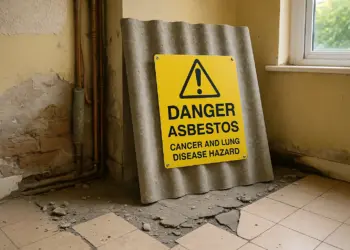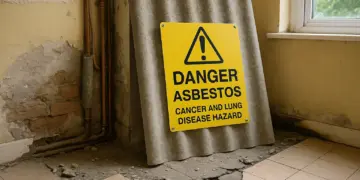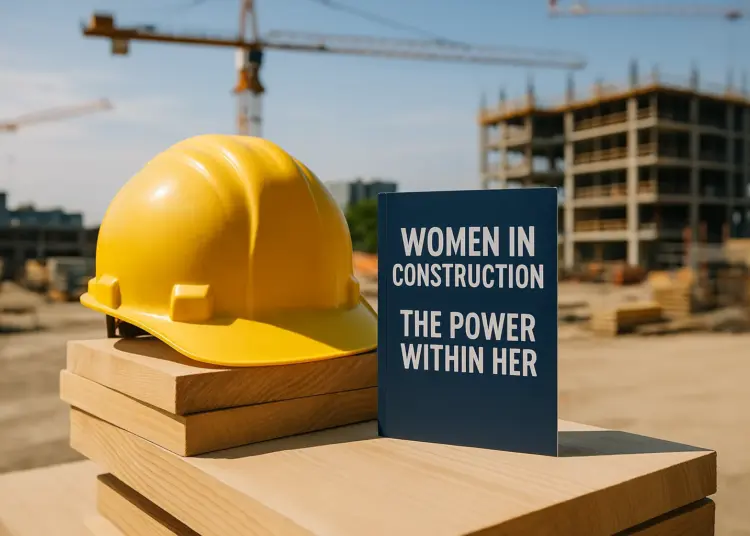Story Highlight
– Women in construction face high stress and self-doubt.
– Female stress levels are notably higher than men’s.
– Confidence gap exists, affecting women’s career progression.
– Leadership diploma program empowers women in construction.
– Diverse leadership helps close skills gap and improve safety.
Full Story
The construction sector, traditionally viewed as a bastion of strength and resilience, is increasingly recognising the importance of fostering the wellbeing and confidence of its workforce. Among the various challenges faced, women in the industry grapple with significant levels of stress and self-doubt. However, initiatives like Women in Construction: The Power Within Her are emerging to address these issues effectively.
Recent research conducted by Ciphr for 2024 highlights a pressing concern: women in the UK are experiencing higher levels of stress than their male counterparts. On average, women report feeling stressed for approximately 11.7 days each month, while men report this for about 8.7 days. The spectrum of causes behind this stress is broad. Financial concerns affect 38% of respondents, with 30% attributing their stress to their general work environment, and 28% citing workload demands specifically. In the construction industry, characterised by challenging deadlines, intricate logistics, and critical safety requirements, these stressors are often intensified. The need for enhanced mental health awareness within the industry is increasingly evident, particularly concerning the support available for women, who remain underrepresented in leadership positions.
The dialogue surrounding women’s experiences in the workplace extends beyond stress levels. Findings from My Confidence Matters reveal that a significant 70% of respondents often feel a lack of confidence at work, with a distinct gender disparity. Notably, 79% of women reported struggles with workplace confidence compared to 62% of men. Moreover, only half of the women surveyed felt they would receive adequate support from their managers should their confidence wane. This lack of confidence can pose a significant obstacle for women aspiring to supervisory or leadership roles, which require a high degree of visibility, authority, and decisiveness. Without proper structural support, women may find themselves overlooked for pivotal positions that would contribute to diversifying and strengthening the sector.
To combat these challenges, the Women in Construction: The Power Within Her initiative plays a pivotal role. It addresses the barriers women face through its flagship programme, the Women in Leadership: Leading With Motivational Intelligence Executive Diploma. This programme, fully funded by the Construction Industry Training Board, allows eligible women to pursue advanced leadership training at no financial cost. Unlike conventional technical qualifications, the diploma emphasises developing leadership skills that profoundly impact workplace culture and project outcomes. Key areas of focus include communication, interpersonal skills, navigating challenges in the workplace, resilience, mental toughness, strategic thinking, and effective decision-making. This comprehensive approach ensures that participants are not only well-versed in their technical fields but are also empowered to assume supervisory and senior roles where their influence can enhance safety standards, project quality, and employee wellbeing.
The effects of this initiative are already being observed across the UK. Graduates from the leadership diploma are advancing into supervisory roles, successfully managing teams on high-profile projects. Their experiences illustrate that diverse leadership is crucial for addressing industry-wide issues, including the skills shortage and safety compliance. By confronting both the mental health hurdles and confidence gaps faced by women, initiatives like Women in Construction: The Power Within Her are reshaping perceptions of leadership in the field. They are demonstrating that resilience in construction stems not solely from physical capability but also from the presence of motivated, confident leaders who can drive sustainable change.
For those interested in the Women in Leadership courses, further information and registration details can be found at: https://women-in-construction.co.uk/women-in-leadership/.
Stay informed on important developments across the construction industry by subscribing to our weekly newsletter for timely updates and stories.
Key Takeaways
– The construction industry is recognizing the importance of workforce wellbeing, especially for women facing stress and self-doubt.
– Women in the UK report higher stress levels (11.7 days/month) compared to men (8.7 days/month), with financial worries, work demands, and workload being significant factors.
– 79% of women lack confidence at work, with half believing they won’t receive managerial support.
– Initiatives like Women in Construction: The Power Within Her provide leadership training, focusing on skills beyond technical qualifications.
– Graduates are taking on supervisory roles, highlighting the importance of diverse leadership in addressing industry challenges.























This is an important spotlight on a real problem. Addressing stress and confidence gaps is essential not just for fairness but for safety and performance on site. Practical wellbeing support, accessible mental health resources and targeted leadership development can help retain talent and reduce risk. Employers should pair these programmes with clear reporting routes, visible senior support and adjustments to workload and pay where needed so women can thrive and lead with authority.
This is a timely and important initiative. Addressing the higher stress levels and confidence gap among women in construction will not only improve wellbeing but also strengthen site safety and team performance. Leadership training that builds resilience, communication and decision making helps women move into supervisory roles and creates more inclusive workplaces. Employers should combine such programmes with practical measures like access to mental health support, flexible working where possible, clear routes for reporting and addressing concerns, and targeted mentoring. That combined approach will help retain talent, reduce incidents linked to stress and foster a safer, more productive industry.